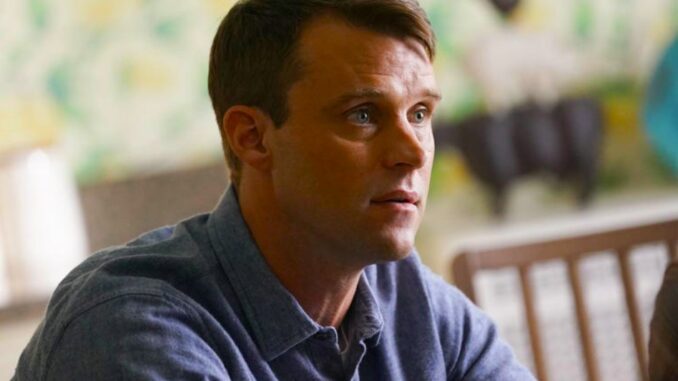
NBC’s Cost-Saving Measures Hit Firehouse 51
As Chicago Fire approaches its 14th season, the series faces significant behind-the-scenes changes due to network-wide budget reductions. NBC’s financial restructuring—affecting not only Chicago Fire but also Chicago P.D., Chicago Med, and the Law & Order franchise—aims to keep long-running shows on the air while adapting to new economic realities in the broadcast TV landscape.
While fans will still get their fix of high-stakes rescues and personal drama, the show is adjusting its production model in ways that will impact casting, episode counts, and even how often favorite characters appear on screen.
Why the Cuts? The Changing Economics of Network TV
Television production has become more expensive, especially as talent costs, location fees, and competition from streaming services continue to rise. NBC, like other major networks, is looking for ways to keep flagship franchises running without ballooning budgets.
The solution? Trimming costs where possible. This includes:
-
Reducing season episode counts
-
Limiting how many episodes regular cast members appear in
-
Freezing annual pay raises
-
Encouraging local residency to cut travel costs
NBC has already started applying these measures across its primetime lineup. The result for Chicago Fire is a leaner production model that still delivers drama—but with fewer resources.
Fewer Episodes, More Focused Storytelling

Though NBC has yet to confirm exact numbers, Season 14 is expected to include fewer than the typical 22 episodes. This mirrors a growing trend among network dramas, which are moving closer to 18–20 episode seasons, and sometimes even fewer.
The upside? More focused, tightly written arcs. With less time to stretch out subplots, writers may sharpen their storytelling, placing greater emphasis on major events, character development, and emotional payoffs. However, some fans may miss the extended world-building and downtime episodes that have long defined Chicago Fire‘s pacing.
Regulars Won’t Be in Every Episode
Another significant change involves cast appearances. Under the new budget guidelines, even series regulars may skip two to four episodes per season. This doesn’t mean characters are being written off, but rather that the show will rotate its cast more deliberately, shifting focus from week to week.
This change has already become visible in recent seasons. Viewers noticed absences of main characters like Severide, Brett, and Kidd in isolated episodes, and Season 14 will likely continue that trend. The intention is to balance screen time and workload while reducing overall production costs.
Still, this format can challenge continuity and character relationships. For fans invested in ongoing arcs—such as Severide and Kidd’s marriage or Violet’s healing journey—the staggered appearances can disrupt emotional momentum.
Cast Asked to Relocate to Chicago
Another cost-saving measure: actors are being encouraged to establish legal residency in Illinois, where the series films on location. Those who remain out-of-state may face further reductions in screen time to cut down on travel and accommodation expenses.
While this helps the bottom line, it places a logistical burden on cast members, especially newer or recurring actors who may not yet have long-term contracts. It could also impact casting decisions moving forward, with preference potentially given to local talent or those willing to relocate.
Two Departures Already Confirmed
As part of the restructured production strategy, Chicago Fire has confirmed the exits of Daniel Kyri (Ritter) and Jake Lockett (Carver) at the end of Season 13. Though beloved by fans, both actors are leaving due to these broader financial changes, not creative dissatisfaction or performance issues.
Their departure makes room for new characters, but also highlights the human cost of budget cuts. With fewer episodes and less guaranteed screen time, maintaining ensemble chemistry becomes more challenging.
Can the Show Keep Its Heart?
Chicago Fire has always thrived on relationships—between firefighters, paramedics, and their extended families. Fans worry that limiting cast appearances or shrinking the ensemble could dilute that emotional resonance. Can the series still deliver the same impact if major characters disappear for multiple episodes?
Showrunners have indicated a commitment to maintaining the emotional integrity of the series, even under tighter restrictions. Smart writing, clever scheduling, and deepening secondary characters may help balance these pressures, but it’s a delicate juggling act.
What It Means for Season 14 and Beyond
With these changes now standard across NBC dramas, Chicago Fire enters Season 14 with a new production reality. While fans may notice some differences—quicker arcs, fewer faces in each episode, tighter pacing—the core mission remains the same: delivering powerful stories about courage, sacrifice, and resilience.
The show’s ability to adapt may ultimately extend its lifespan. By trimming costs without sacrificing quality, NBC ensures that Chicago Fire can keep telling stories that resonate with its loyal fanbase—even if it means doing more with less.
How to Watch and What to Expect
Season 13 is currently airing Wednesdays at 8 p.m. ET on NBC, with episodes available for next-day streaming on Peacock. Season 14 is expected to premiere this fall, although an exact date has not yet been announced.
In the meantime, fans can revisit earlier seasons on Peacock and prepare for a new era of Chicago Fire—one shaped by change, but still fueled by heart.